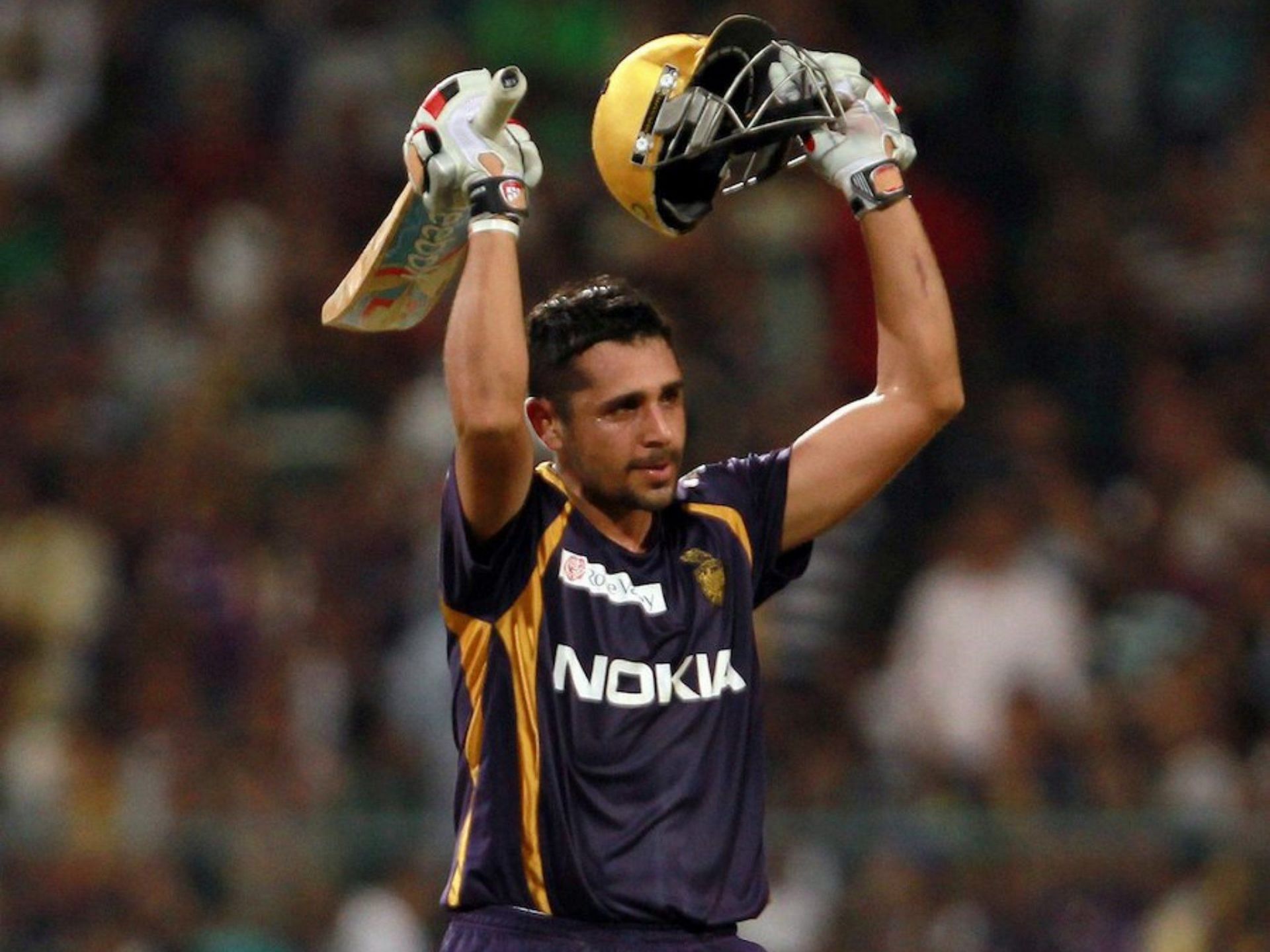
3 best knocks for KKR in IPL finals ft. Manvinder Bisla
Over the course of the IPL 2024 season, we have discussed a ton of similarities between the Kolkata Knight Riders (KKR)'s current team and the legendary ones of 2012 and 2014 -- when they won their two titles.
There's an identical focus on wicket-taking, a similar ability to win games away from home (KKR have won only twice in Wankhede -- 2012 and 2014), and a comparable abundance of 'big-match players' all around.
There's only one difference left -- the title itself, ideally led by a match-winning performance from someone who was mostly a nobody before the summit clash.
Below is a discussion of the three best knocks for KKR in IPL finals, read along and see if you can think of a player to do in 2024 what they did then:
#3 Jacques Kallis - 69 (49) vs CSK, 2012
We have only used knocks from the 2012 and 2014 finals. The other time KKR made it to the last game, in 2021, it was a poor batting show that cost them the most. That was against Chennai Super Kings (CSK) in Ahmedabad so you can imagine the difficulty level of the 2012 one against MS Dhoni's team in Chepauk.
CSK put up 190/3 in the first innings, courtesy of brilliant outings from each of their top-four batters. At that time, CSK had never lost a game in the IPL after scoring 190, let alone at home. To make matters worse, KKR lost skipper Gautam Gambhir in the first over, losing his stumps after missing an ugly hoick vs Ben Hilfenhaus.
At that stage, Jacques Kallis and Manvinder Bisla joined hands. The latter is vividly remembered for what he did (and we'll talk about that too) but Kallis not so much. The South African legend brought out exactly what KKR had signed him for - stability, an impregnable technique against spin and strike-rotation.
He and Bisla put up 136 runs between them -- the second-highest stand in an IPL final at that time -- with the latter taking the more aggressive route. Not many remember that when Bisla got out, KKR still needed 52 off 32 and he exploded like never before, hitting three fours and a six in the next two overs to set up the win.
By providing ice to Bisla's fire, Kallis played one of the best and most underrated knocks in an IPL final.
#2 Manvinder Bisla 89 (42) vs CSK, 2012
Now comes the main act. Bisla, a wicketkeeper-batter from Haryana's Hisar, wasn't supposed to play the final. He got the chance because pacer L Balaji got injured and to allow Brett Lee's entry as the fourth overseas player in the 11, KKR needed to drop Brendon McCullum for an Indian wicketkeeper. More curiously, he was on the verge of getting a ban from the BCCI before that game!
But still, in a way, he had nothing much to lose and a lot to show the world in that final. A proper team player, he didn't take long to start targeting the CSK bowlers without picking or choosing - just backing up or walking down to hit wherever the gaps were. He started in the fourth over, taking down Albie Morkel with three consecutive fours, and then Ravichandran Ashwin for two sixes in the next.
The biggest skill on show was his ability to read the slower ones. As his rhythm grew, he found a tempo and Kallis and his stand started yielding 9-10 runs every over with ease. His knock ended with a slower one only, though, that too from Morkel for a 48-ball 89, with his strike rate of 185.41 shining brilliantly.
"I don't know if we can over-analyse how wrong we got it, but admire what they did. Bisla, I thought, was outstanding, they needed someone to stand up," CSK coach Stephen Fleming said at the time. "We got a great early wicket of [Gautam] Gambhir, which we had targeted, but we didn't expect the onslaught from Bisla, maybe a quick 30, 40 would have been fine, but he took it quite deep."
At the time, it was the second-highest score in an IPL final, an ever-lasting feat.
#1 Manish Pandey - 94 (50) vs PBKS, 2014
The only reason why this ranks higher than Bisla and Kallis here is because they had each other to support in 2012 while Manish Pandey had no one in 2014. As he notched 94 (50) in the chase of Punjab Kings (then, Kings XI Punjab), the second-highest score was 36, and four batters didn't go past 10.
KKR were chasing exactly 200, set up by a wonderful century from Wriddhiman Saha in the first innings. Unlike 2012, when CSK were defending a target they had never lost a match with, these many runs had never been chased in a T20 final.
Only two shots are enough to describe Pandey's innings: a wristy four against Mitchell Johnson in the first over and an inside-out six against Karanveer Singh in the seventh. It was not the aesthetics, but the fact that those boundaries came on the balls just after Robin Uthappa and Gautam Gambhir, respectively got out.
Because that's what he did throughout the innings. Wickets kept falling from the other end, and partnerships kept breaking but he continued to take on PBKS's best and most struggling bowlers, hitting seven fours and six maximums, setting up KKR with 21 needed off 18, which they chased after overcoming some jitters.